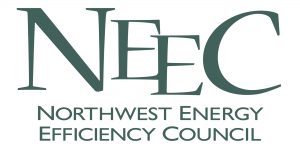Despite a strong effort by a coalition of stakeholders, Referendum 52 was not approved by Washington voters. The statewide vote count had a 45% approval total with the vast majority of counties showing a majority of voters against the measure. Populous King County, however, showed strong majority support for the referendum. Post mortem on the reasons for the electoral defeat cluster around two major themes. Clearly 2010 was not a good year for measures that contained the word “tax”. Though R-52 would have only extended the tax on bottled water (which itself was repealed by another initiative), the ballot language itself mentioned this tax and likely fed the general anti-tax sentiment evident this year. Moreover, the Washington ballot contained a high number of statewide initiatives, many of which were high profile, making it difficult for R-52 to get a clear and independent message out to voters. Does this defeat mean that energy efficiency has lost public support? While some may try to characterize it that way, it seems more likely that the defeat of R-52 was a public statement on tax and debt issues rather than an abandonment of energy efficiency. This dichotomy was evident in the editorial pages of The Seattle Times which recommended against approving R-52 due to suspicion that energy efficiency actually delivered real operational cost reductions as well as discomfort that the initiative personified excessive governmental ambition. The paper did not however, attempt to reconcile that position with its frequent endorsement over the past few years of energy efficiency as a low cost resource as well as endorsements for candidates (excluding of course referendum supporter Rep. Hans Dunshee) for their strong positions on clean energy alternatives.
South of the Columbia River, the story for energy efficiency turned out differently. John Kitzhaber was elected Governor in a tight race with political newcomer Chris Dudlee. Kitzhaber ran on a campaign platform in which energy efficiency played a major part of an economic recovery plan for the state. In the waning days of a tight election race, the stark differences in the two candidates’ economic recovery and job creation ideas were a focus in the local media. In Oregon, it seems clear that energy efficiency support was one of the components of a Kitzhaber victory.
Going forward, this election season underscores the need for the energy efficiency industry to strengthen the message of the long term economic value of the resource. The fact that more efficient equipment and operational practices reduces owners’ long term costs and risk seems to still escape a segment of the population (which includes “think tanks” like the Washington Policy Center). The claims of uncertainty about the return on investment for energy efficiency gained sufficient toe hold that they were cited by numerous editorial boards across the state. The facts of course say otherwise, but sadly our current state of public discourse is often not bothered by them.
